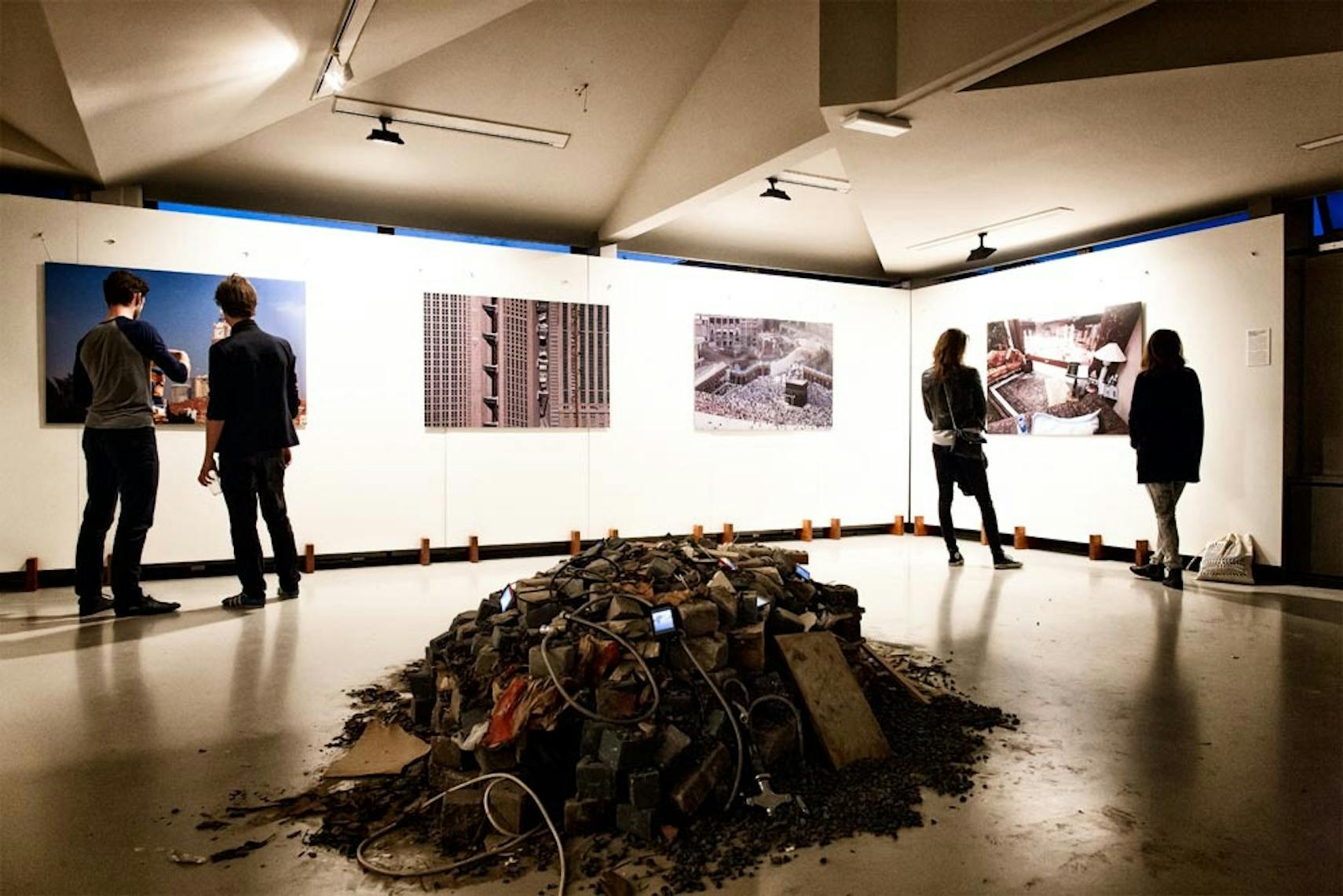
Framer Framed, Amsterdam, The Netherlands

Curated by
Robert Kluijver
Works from Desert of Pharan featured in this group exhibition and extensive public program concerned with the crisis of history, and how this crisis is felt in the art world, particularly in the Middle East.
With ‘the End of History’, Francis Fukuyama meant that the triumph of the West over its communist foe signaled the endpoint of humanity’s sociocultural evolution; Western liberal democracy was the final form of human government. “What we may be witnessing is not just the end of the Cold War, or the passing of a particular period of post-war history, but the end of history as such: that is, the endpoint of mankind’s ideological evolution and the universalization of Western liberal democracy as the final form of human government.”
25 years after this seminal text, which ushered in the post-modernist era, Robert Kluijver sought to examine the legacy of his thought. It was not an exhibition about Western liberal democracy, capitalism or post-modernism and its purported evils; but about history itself. The exhibition posited that history had reached an impasse, lacking any directional power it could still teach much to humankind, but only if the whole field of history were broken open.
The exhibition recognised that there was one region in the world seen to be suffering particularly from this crisis of history: the Arab world, or the Middle East, or the Islamic world. The exhibition's introduction stated: "Since the so-called ‘Arab Spring’ erupted in 2011 the discomfiture of people trapped in socio-political regimes that they reject has become manifest to the rest of the world. But one can easily argue that a feeling of ‘crisis of history’ has existed in the Arab/Islamic world since the mid 19th century, when Arab, Iranian, Indian and other intellectuals started wondering why their societies were lagging behind while the West was taking off. There have been periods of hope and periods of despondency. Now the status-quo in this region is exploding. Artists from this region of the world cannot blithely retreat into their own post-modernist reality, as so many Western artists seem to be doing; the unfolding events, not only in their region but throughout the world, are forcing them to ask the most intractable questions: what is this global crisis of history, how did it come about and how are we going to deal with it?"
The exhibition was supplemented by an extensive programme comprising film screenings, theatre, literature, music, debate, tours and critiques. This allowed for a deep reflection on the subject of the exhibition and also to explore the potential meaning of the exhibition in the broader art world.
We used to believe we were going somewhere, in history. During the 19th and 20th century the ambition of modernity swept all over the world, bringing considerable change and promising much more. But now the ‘End of History’ is said to have arrived. It was 25 years ago, exactly, that this phrase was first used, as the Berlin Wall fell and the West triumphed.